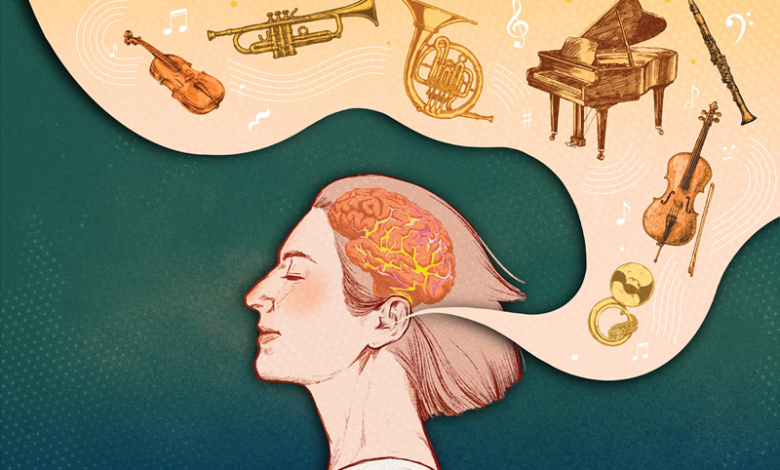The brain’s reaction to classical music

News Mania Desk / Piyal Chatterjee / 12th November 2024
If you love classical music, you are well aware that the melodies of Ravi Shankar, Bhimsen Joshi, and Shivkumar Sharma may take you to a another world. Others view these works of art as little more than a melody played as they wait in the doctor’s office. Whatever your opinion of classical music, studies have shown that it has a number of beneficial effects on the brain, including improving memory and promoting calm.
According to the adage that music is “food for the soul,” classical music contains antioxidants, omega-3 fatty acids, and a hint of caffeine. Dr. Gordon Shaw, a physicist and professor at the University of California, observed that his undergraduate students’ IQs increased after listening to Mozart in a 1993 control group. Experts expressed a great deal of skepticism and concern about the study, which was dubbed the “Mozart Effect.” Even though the results weren’t directly connected to higher IQs, Dr. Shaw considered that Mozart music would help activate the brain regions involved in abstract cognition.
In support of this, a study by Dr. Kevin Labar claims that music can enhance cognitive function and intellectual performance without increasing IQ. In reality, dopamine is released to increase pleasure due to the relaxing effects of classical music. Additionally, dopamine inhibits the release of stress chemicals. This improves mood, which in turn makes thinking clearer and makes studying and producing essays much more pleasurable.
Put sitar on the stereo, sit back, and close your eyes if you’re feeling stressed out from work, school, or daily life. Why? because there is an innate connection between classical music and stress reduction. According to a 2018 study on the impact of several musical genres on patients’ anxiety before surgery, classical music can reduce emotional distress and slow breathing and heart rate. Additionally, classical music reduces cortisol levels in the brain, which can help lower blood pressure and anxiety.
Do you frequently lose your keys? Listen to some classical music, if possible. According to a study from the Department of Medical Genetics at the University of Helsinki in Finland, even 20 minutes a day of classical music listening can alter the genes that control memory and brain function. Those who listened to classical music during the trial were more likely to experience favorable effects. The study team observed an increase in learning and memory-related genes, synapse function, and dopamine secretion. The gene synuclein-alpha (SNCA), which is frequently connected to how birds remember their song, was also included in this, indicating the evolutionary context of sound perception and memory.
It is evident that classical music can benefit the entire body in addition to the brain. Making a fresh classical playlist on Spotify is justified by its capacity to alleviate blood pressure, anxiety, and even pain. We should enjoy listening to classical music on a daily basis. But nothing compares to the real thing.






